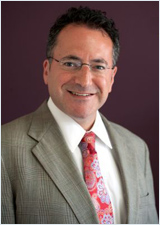Dr. David Glassman

Music and the management of chronic pain have a lot in common. They both require precision and finesse. They're both complex, and somewhat unpredictable. Both -- when designed and executed properly -- deliver unexpected delight, renewal, and freedom.
Dr. David Glassman would know. The pain management specialist initially pursued music at the University of Rochester's Eastman School of Music. He doubled his major with biology after working at a local hospital -- and becoming passionate about medicine.
Drawn by Israeli roots, Dr. Glassman enrolled in the Sackler School of Medicine in Tel Aviv. During a rotation at a local hospital, he found himself shadowing the chief of anesthesia, a brilliant doctor and professor. Anesthesiology combined pharmacology, physiology, neurology, critical care, surgery, and pain management. It was technically challenging and impressively cutting edge. Dr. Glassman was hooked.
Back in the U.S., the new anesthesiologist spent four years at Hackensack University Medical Center, attending to surgeries. Then, back in Connecticut, he was awarded a fellowship in pain management at Yale, and the rare, progressive procedures he learned (including facet injections, intrathecal pumps, kyphoplasty, and spinal cord stimulators) changed his life and his practice.
In 2004, Dr. Glassman joined Connecticut Neuroscience, a New Haven-based neurosurgical group dedicated to alleviating spine, back, and neck pain in the Tri-State area since its inception in 1971. He is passionate about diagnosing and evaluating patients, and administering minimally invasive treatments with the intended goal of restoring them to a more pain-free condition. "People today are lucky. Since 1995, there have been incredible advances in pain management," he says. Even so, the profession is surprisingly rare; in the U.S., there's only one pain specialist for every 19,000 patients who receive a pain prescription.
Dr. Glassman still plays his clarinet, flute, and saxophone, and he still performs. "Music is a crucial part of who I am. I set the mood of the office with Erroll Garner, Ella Fitzgerald, John Coltrane, Sarah Vaughan -- even in my treatment rooms. It seeps into all aspects of my practice, especially the moment my patients realize they are free to live their lives again," he says, adding "It's very satisfying."
